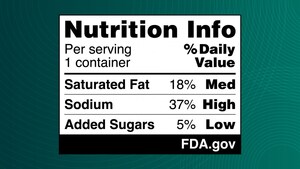FDA Approves New Injectable Osteoporosis Treatment for Postmenopausal Women
SILVER SPRING, Md., June 1 /PRNewswire-USNewswire/ -- The U.S. Food and Drug Administration today approved Prolia, an injectable treatment for postmenopausal women with osteoporosis who are at high risk for fractures.
(Logo: http://www.newscom.com/cgi-bin/prnh/20090824/FDALOGO )
Osteoporosis is a disease in which the bones become weak and are more likely to break. According to the National Institute of Arthritis and Musculoskeletal and Skin Diseases, 80 percent of the people in the United States with osteoporosis are women. One out of every two women over age 50 will break a bone in their lifetime due to osteoporosis.
People with osteoporosis at high risk for fracture include those that have had an osteoporotic fracture, or have multiple risk factors for fracture; or those who have failed or are intolerant to other available osteoporosis therapy. Prolia works to decrease the destruction of bone and increase bone mass and strength. An injection of Prolia is recommended once every six months.
"Due to its prevalence, osteoporosis is a serious concern to public health," said Julie Beitz, M.D., director of the FDA's Office of Drug Evaluation III. "The approval of Prolia provides another treatment option for postmenopausal women with osteoporosis who are susceptible to fractures."
The safety and efficacy of Prolia in the treatment of postmenopausal osteoporosis was demonstrated in a three-year, randomized, double-blind, placebo-controlled trial of 7,808 postmenopausal women ages 60 to 91 years. In the study, Prolia reduced the incidence of vertebral, non-vertebral, and hip fractures in postmenopausal women with osteoporosis.
The most common side effects reported with Prolia include back pain, pain in the extremities, musculoskeletal pain, high cholesterol levels, and urinary bladder infections. Serious adverse reactions include hypocalcaemia (low calcium levels in the blood), serious infections, including infections of the skin, and dermatologic reactions such as dermatitis, rashes, and eczema.
Prolia causes significant suppression of bone turnover and this suppression may contribute to the occurrence of osteonecrosis of the jaw, a severe bone disease that affects the jaw, atypical fractures, and delayed fracture healing.
Prolia was approved with a risk evaluation and mitigation strategy (REMS) that includes a Medication Guide for patients and communications to health care providers that explains the risks and benefits of the drug.
Prolia is manufactured by Amgen Manufacturing Limited, a subsidiary of Thousand Oaks, Calif.-based Amgen Inc.
For more information
Fast Facts on Osteoporosis – National Institute of Arthritis and Musculoskeletal and Skin Diseases
http://www.niams.nih.gov/Health_Info/Bone/Osteoporosis/osteoporosis_ff.asp
Media Inquiries: Elaine Gansz Bobo, 301.796.7567, [email protected]
Consumer Inquiries: 888-INFO-FDA
SOURCE U.S. Food and Drug Administration
WANT YOUR COMPANY'S NEWS FEATURED ON PRNEWSWIRE.COM?
Newsrooms &
Influencers
Digital Media
Outlets
Journalists
Opted In






Share this article